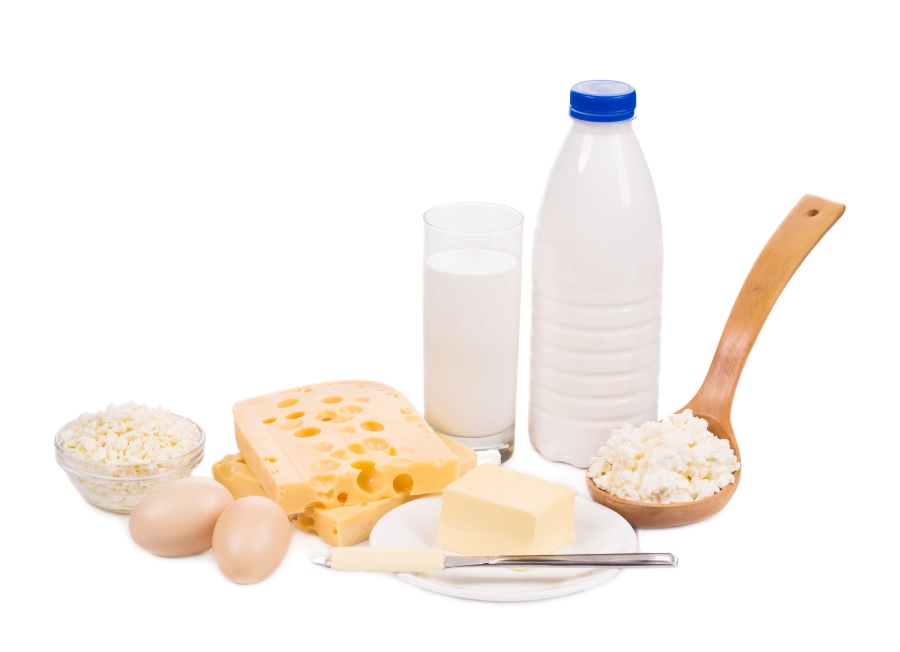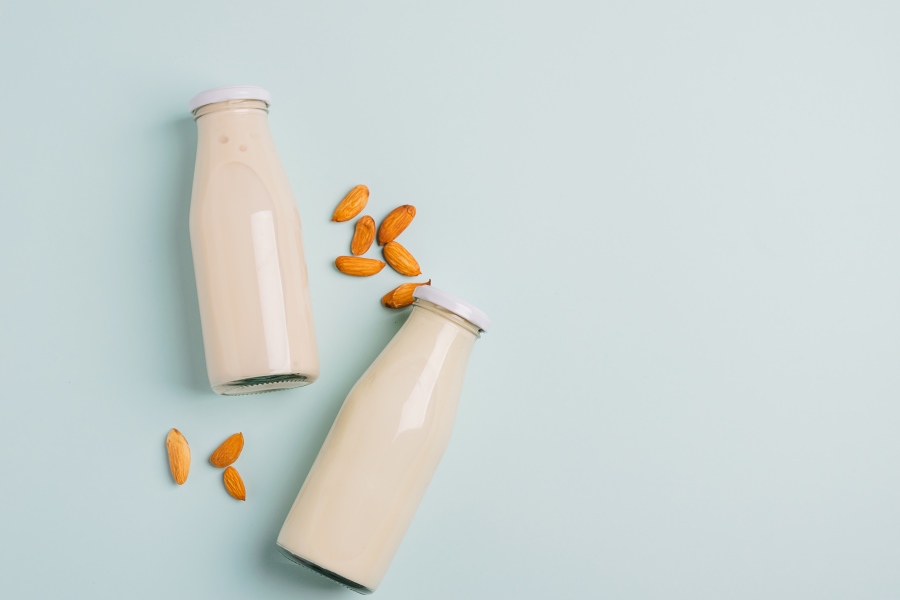17 Signs and Symptoms of Vitamin B12 Deficiency

Vitamin B12, or cobalamin, is essential for various metabolic activities in the body. This vital nutrient plays a critical role in the production of red blood cells, the maintenance of the nervous system, and the synthesis of DNA. Therefore, the lack of this nutrient can lead to major health issues. Vitamin B12 deficiency, for instance, can cause anaemia and serious damage to the nervous system.
Understanding the importance of vitamin B12 and the risks associated with its deficiency is crucial for maintaining overall health and well-being. Keep scrolling to know about the various causes and symptoms of low vitamin B12 and learn how to ensure you get enough of this indispensable nutrient in your diet.

Table of Contents

What is Vitamin B12 Deficiency?
Vitamin B12 deficiency is caused due to an insufficient amount of cobalamin in the body. This can manifest as a reaction to the loss of intrinsic gastric factor that helps absorb B12 components from the food source.
It can restrict the production of red blood cells in the body. Moreover, it severely affects the functioning of the nervous system.
Lack of vitamin B12 can cause anaemia and other health problems in humans. This issue is quite common in females who go through severe menstruation pain and fatigue.
Pernicious anaemia can also cause Vitamin B12 deficiency when a person's immune system reduces the absorption of cobalamin.
Apart from these medical conditions, a poor diet or certain medications can lead to the deficiency of vitamin B12. Hence, it is essential to understand and recognise the vitamin B12 deficiency symptoms and opt for immediate medical attention.
How Common is Vitamin B12 Deficiency?
Vitamin B12 deficiency is quite common, affecting around 6% of people under 60 and 20% of those over 60 globally. It is particularly prevalent among vegetarians, vegans, and the elderly due to dietary limitations and reduced absorption capabilities.
In developing countries, the deficiency is often linked to malnutrition, while in developed nations, it can result from poor dietary choices and medical conditions. Aging also reduces B12 absorption, and certain medications can exacerbate this issue. This deficiency is often underdiagnosed despite its prevalence, making awareness and regular screening crucial.
What are the Signs & Symptoms of Vitamin B12 Deficiency?
An individual with vitamin B12 deficiency may notice some of the general symptoms listed below:
| S.No | Symptoms | Description |
| 1 | Fatigue | Persistent feeling of tiredness and lack of energy. Even with adequate rest, individuals may feel constantly exhausted. |
| 2 | Weakness | General muscle weakness and a lack of strength. This makes daily activities more difficult to perform. |
| 3 | Memory Loss | Difficulty remembering things or experiencing forgetfulness. This can affect daily functioning and productivity. |
| 4 | Mood Swings | Frequent mood changes, including irritability and sudden emotional shifts. This can impact overall mental health. |
| 5 | Depression | Persistent feelings of sadness and hopelessness. This mental health condition can be exacerbated by vitamin B12 deficiency. |
| 6 | Numbness or Tingling | Sensations of numbness or tingling, particularly in the hands, legs, or feet. This is due to nerve damage caused by the deficiency. |
| 7 | Difficulty Walking | Problems with balance and coordination. This can lead to unsteady walking or frequent falls. |
| 8 | Vision Disturbances | If the optic nerve is affected, blurred or disturbed vision can occur, which may lead to difficulty seeing clearly. |
| 9 | Pale Yellow Skin Colour | The skin may take on a pale yellow hue. This is often due to anaemia and the breakdown of red blood cells. |
| 10 | Constipation | Difficulty in passing stools or infrequent bowel movements. This can cause discomfort and abdominal pain. |
| 11 | Psychosis | A severe mental disorder characterised by a disconnection from reality. Symptoms may include delusions and hallucinations. |
| 12 | Anxiety | Persistent feelings of worry, nervousness, or unease. This can affect daily life and overall well-being. |
| 13 | Difficulty Thinking or Confusion | Trouble concentrating, thinking clearly, or making decisions. This can impact daily tasks and work performance. |
| 14 | Dementia | Severe memory loss and cognitive decline. This affects daily functioning and can significantly reduce quality of life. |
| 15 | Heart Palpitations | Noticeable heartbeats or a feeling of the heart racing. These vibrations can be a symptom of anaemia related to vitamin B12 deficiency. |
| 16 | Glossitis and Mouth Ulcers | Inflammation of the tongue and mouth ulcers causes pain and discomfort. These symptoms can affect eating and speaking. |
| 17 | Shortness of Breath | Difficulty breathing or feeling short of breath. This is often associated with anaemia caused by the deficiency. |
The conditions can worsen over time and give rise to other diseases.
In some instances, an individual may experience no symptoms of this deficiency. Nonetheless, precautions like consuming a vitamin B12-rich diet are recommended.
Reasons that Cause Vitamin B12 Deficiency
If you are wondering what causes vitamin B12 deficiency, keep reading to get an in-depth idea.
1. Pernicious Anaemia
Vitamin B12 needs to be absorbed by the body. For this, it binds with an intrinsic factor protein in the stomach. Typically, the cells in the stomach lining produce this protein. However, in conditions with pernicious anaemia, the body's immune system erroneously attacks these cells. This prevents the intrinsic factors from getting absorbed and bind with vitamin B12.
It is an autoimmune condition that affects individuals over 50 years old. Pernicious anaemia is a common disease in women.
In certain cases, genetic conditions can be a reason for the disease. It affects patients with autoimmune conditions like Addison's disease and Hashimoto's thyroiditis.
2. Disorders in Stomach and Intestines
Individuals with stomach and intestinal problems are prone to suffer from vitamin B12 deficiency. In certain cases, surgeries can also create the risk of vitamin B12 deficiency.
- Intestinal problems: The conditions where the lining of the digestive tract is inflamed can generate vitamin B12 deficiency risks. Conditions like celiac disease, Crohn's disease, chronic tropical sprue, etc., are some conditions that may lead to this deficiency.
- Stomach conditions: Individuals suffering from atrophic gastritis have a higher risk of developing vitamin B12 deficiency. This disease causes thinning of the stomach lining and raises the risk of Helicobacter pylori bacterial infections.
- Surgery: In certain conditions, the surgical procedures conducted to remove part or all of the intestine or stomach can prevent sufficient absorption of vitamin B12.
3. Inadequate Dietary Intake
Diet plays a vital role in managing human nutritional requirements. A lack of vitamin B12-rich foods can lead to deficiency, resulting in various health issues. Foods rich in vitamin B12 include meat, dairy products, eggs, and fortified cereals.
Vegetarians and vegans, in particular, need to be mindful of their intake and may require supplements to meet their nutritional needs. Ensuring a balanced diet that includes adequate sources of vitamin B12 is essential for maintaining overall health and preventing deficiencies.
Some of the issues caused by this deficiency are discussed next. Keep reading!
Diagnosis of Vitamin B12 Deficiency
Vitamin B12 deficiency can lead to serious health problems if not diagnosed and treated in time. Early detection is crucial to prevent complications. Here are the key methods used to diagnose vitamin B12 deficiency:
1. Medical History and Symptoms
Your doctor will ask about your medical history and symptoms. Common symptoms of vitamin B12 deficiency include fatigue, weakness, pale skin, and neurological changes like memory loss or tingling in the hands and feet.
2. Physical Examination
A thorough physical examination will be conducted to check for signs of vitamin B12 deficiency, such as mouth ulcers, a pale complexion, a swollen, inflamed tongue, shortness of breath, etc.
3. Blood Tests
Blood tests are essential for diagnosing vitamin B12 deficiency. These tests measure the levels of vitamin B12 in your blood. Additionally, elevated levels of homocysteine and methylmalonic acid are checked, which can indicate a deficiency.
4. Complete Blood Count (CBC)
A Complete Blood Count (CBC) test can reveal larger than normal red blood cells (macrocytosis) and a reduced number of red blood cells (anaemia), both of which are indicators of vitamin B12 deficiency.
5. Intrinsic Factor Antibodies Test
This test checks for antibodies against intrinsic factor, a protein needed for vitamin B12 absorption. These antibodies can indicate pernicious anaemia, a common cause of deficiency.
Best Food Sources to Overcome Vitamin B12 Deficiency
Vitamin B12 is essential for maintaining healthy nerve cells, producing DNA, and aiding in the creation of red blood cells. A deficiency in this vital nutrient can lead to serious health issues. Here are some of the best food sources to ensure you get enough vitamin B12 in your diet:
Animal Proteins and Seafoods to Overcome Vitamin B12 Deficiency

Animal proteins and seafood are some of the richest sources of vitamin B12. Including these in your diet can significantly help in overcoming vitamin B12 deficiency. Several options include:
| S.No. | Item | Nutritional Value (Vitamin B12 per 100g) |
| 1 | Beef Liver | 59.3 mcg |
| 2 | Clams | 11.28 mcg |
| 3 | Salmon | 3 mcg |
| 4 | Sardines | 8.94 mcg |
| 5 | Tuna | 10.9 mcg |
| 6 | Mackerel | 13.8 mcg |
| 7 | Crab | 11.5 mcg |
| 8 | Trout | 4.5 mcg |
| 9 | Chicken | 0.3 mcg |
| 10 | Turkey | 1 mcg |
| 11 | Pork | 1 mcg |
| 12 | Eggs | 2.7 mcg |
Dairy Products to Overcome Vitamin B12 Deficiency

Dairy products are an excellent source of vitamin B12, essential for maintaining healthy nerve cells and producing DNA. Incorporating dairy products into your diet can help overcome vitamin B12 deficiency, especially for those who may not consume enough meat or seafood. Below is a table listing various dairy products and their vitamin B12 content.
| S.No | Item | Nutritional Value (Vitamin B12 per 100g) |
| 13 | Milk | 0.9 mcg |
| 14 | Yogurt | 0.8 mcg |
| 15 | Cheese | 1.10 mcg |
| 16 | Swiss Cheese | 3.1 mcg |
Other Eatables to Overcome Vitamin B12 Deficiency

Apart from animal proteins, seafood, and dairy products, several other foods can help you boost your vitamin B12 levels. These foods are particularly useful for those looking for a diverse diet to maintain adequate levels of this essential nutrient. Below is a table listing various other eatables rich in vitamin B12.
| S.No | Item | Nutritional Value |
| 17 | Fortified Cereals (100g) | 18.8 mcg |
| 18 | Fortified Soy Milk (one cup) | 8 mcg |
| 19 | Fortified Almond Milk (one cup) | 2.1 mcg |
| 20 | Fortified Orange Juice | 2.5 mcg |
| 21 | Marmite Spread (8g) | 1.9 mcg |
| 22 | Fortified Tofu (one cup) | 3.3 mcg |
| 23 | Whey Protein | 0.3 mcg |
| 24 | Nutritional Yeast | 150 mcg |
Useful Tools to Track Your Health
How Much Vitamin B12 Do You Need Daily?
The daily recommended intake of vitamin B12 varies by age, gender, and life stage. Adults need 2.4 micrograms (mcg) of vitamin B12 daily. Pregnant women should aim for 2.6 mcg, while breastfeeding women require 2.8 mcg to support their infants. Depending on age, children and infants need between 0.4 and 1.8 mcg.
Ensuring adequate intake of vitamin B12 is essential for red blood cell formation, nerve function, and DNA synthesis. Incorporate vitamin B12 rich foods into your diet, or consider supplements if necessary.
Side Effects of Vitamin B12 Deficiency
Understanding the side effects of vitamin B12 deficiency is important for maintaining overall health and well-being. Here are the common side effects associated with a lack of vitamin B12 in the body:
- Fatigue and Weakness
- Anaemia
- Neurological Changes
- Cognitive Impairments
- Mood Disorders
- Vision Problems
- Glossitis and Mouth Ulcers, etc.
Apart from those mentioned above, there are several other side effects, such as heart palpitations and shortness of breath, gastrointestinal issues, infertility, etc.
Diseases Caused Due to Vitamin B12 Deficiency
Vitamin B12 deficiency can cause multiple complications in the body. However, the severity can vary from person to person.
- Neurological Complications: Insufficient vitamin B12 levels can lead to severe neurological issues. These include memory loss, pain in body parts, poor vision, peripheral neuropathy, difficulty speaking and walking, etc.
- Neural Tube Weaknesses: The foetus is at higher risk if a pregnant woman suffers from vitamin B12 deficiency. This can lead to premature birth or increase the chances of congenital disabilities like spina bifida.
- Infertility: Vitamin B12 deficiency can affect a woman's reproductive capability. This leads to issues with conceiving. However, the conditions are reversible with proper treatment.
- Stomach Cancer: Pernicious anaemia, one of the leading causes of vitamin B12 deficiency, increases the chances of stomach cancer.
Treatment for Vitamin B12 Deficiency
Effective treatment of vitamin B12 deficiency is crucial to restore adequate levels of this essential nutrient and improve overall health. Below are common treatment methods and their descriptions:
| Treatment Method | Description |
| Vitamin B12 Injections | Administered by a healthcare provider, these injections quickly raise B12 levels and are often used for severe deficiencies. |
| Oral Supplements | B12 pills or capsules taken daily to increase B12 levels gradually; suitable for mild to moderate deficiencies. |
| Dietary Changes | Incorporating B12 rich foods such as meat, dairy, and fortified cereals can help naturally boost B12 levels. |
| Sublingual Supplements | B12 tablets are placed under the tongue for direct absorption into the bloodstream, bypassing the digestive system. |
| Nasal Sprays | B12 is delivered through the nasal passages for individuals with absorption issues, providing a convenient alternative to injections or pills. |
How Long Does It Take to Cure Vitamin B12 Deficiency?
Individuals who maintain a proper diet and healthy lifestyle will likely overcome vitamin B12 deficiency faster. It can take 6 to 12 months to completely recover from the deficiency.
Below is a table outlining the typical timeline for symptom resolution and the corresponding symptoms:
| Symptom Resolution Timeline | Symptoms |
| A Few Days to a Week | Improved energy levels, reduced fatigue, and enhanced mood. |
| A Few Weeks | Better concentration, improved memory, and decreased numbness or tingling in hands and feet. |
| One to Three Months | Normalisation of red blood cell count and haemoglobin levels improved skin and nail health. |
| Three to Six Months | Full recovery of nerve function and resolution of cognitive impairments. |
Note that the duration for curing vitamin B12 deficiency can differ from person to person. Regular monitoring and follow-up with a healthcare provider are essential to ensure complete recovery and prevent recurrence.
How to Overcome Vitamin B12 Deficiency?
- An individual should consult a doctor and get the vitamin B12 levels checked.
- Individuals with celiac and Crohn's disease who restrict vitamin B12 absorption should consult a doctor, follow the instructions, and adhere to the medications prescribed.
- Strict vegans and individuals over 50 should consult a dietician and follow the suggested meal plan. They can increase their consumption of cereals, bread, fortified breakfast cereal, fresh fruits, and vegetables.
Who is at Risk of Suffering from Vitamin B12 Deficiency?
Vitamin B12 is essential for red blood cell formation, nerve function, and DNA synthesis. Certain groups of people are more likely to suffer from vitamin B12 deficiency, including:
- Vegetarians and Vegans: Since vitamin B12 is primarily found in animal products, those who follow a plant-based diet may need more of this nutrient.
- Older Adults: Aging can decrease the body's ability to absorb vitamin B12, increasing the risk of deficiency in older adults.
- People with Digestive Disorders: Conditions like Crohn's disease or celiac disease can impair the absorption of vitamin B12.
- Pregnant and Breastfeeding Women: These women need higher levels of vitamin B12 to support their health and their baby's development.
- Individuals with Pernicious Anaemia: This autoimmune condition affects the stomach's ability to produce a protein needed for vitamin B12 absorption.
- People Taking Certain Medications: Medications like proton pump inhibitors or metformin can inhibit vitamin B12 absorption.
Vitamin B12 deficiency is a significant health concern that can lead to a range of severe and potentially irreversible health issues. Recognising the early signs of deficiency is essential for timely intervention. Regular health check-ups and monitoring of B12 levels can help maintain adequate levels and prevent the recurrence of deficiency.
Addressing the deficiency proactively ensures better health outcomes, enhances overall well-being, and prevents the development of serious health complications. The steps outlined in the article are crucial for at-risk individuals and contribute to a healthier and vibrant life.
Protect What Matters - Explore Other Insurance Options














